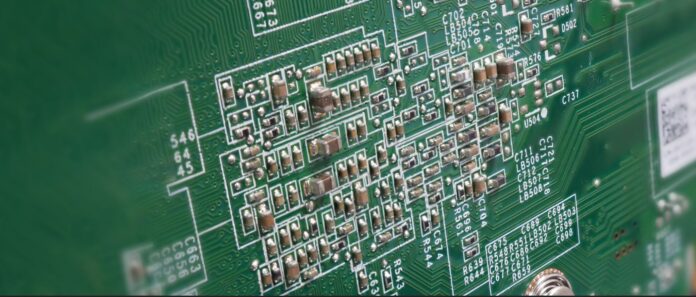Semiconductors have become a big part of the technological race. For a few years now, the world’s chip tycoons have been investing by the Vistula River, and thus giving Poland a chance to take a significant place in the global chip supply chain – writes Jacek Perzyński, editor at BiznesAlert.pl.
It is worth noting that semiconductors are small, but extremely important elements in the functioning of electronic equipment. Without advanced integrated circuits (ICs), the operation of cars, airplanes, trains, smartphones, computers would become virtually impossible, since they are responsible for the functioning of various systems, performing calculations, or controlling engines in vehicles.
Semiconductors are today’s steel, and dominance in this area will be a step towards victory in the technological race.
The demand for chips will grow, and Europe must act
It is estimated that demand for state-of-the-art advanced ICS, generated by the rapid development of technologies such as 5G, 6G networks and artificial intelligence, will account for more than 40 percent of European semiconductor consumption by 2030.
It should be mentioned that the sanctions imposed by the US administration on the export of technology and chips to the Middle Kingdom in October 2022 significantly curbed the production of the most advanced micro-devices in China.
This creates opportunities for Europe, which must double its production potential by 2030. This involves large investments, but also enormous potential profits, which in the long term will significantly change our reality, introducing European industry to the global technological competition in the semiconductor market.
The European Union has set itself an ambitious goal. By 2030, the Community aims to more than double its semiconductor production capacity, capturing 20 percent of the global market and becoming a major player. This will enable self-sufficiency, which is increasingly important in the face of political tensions and trade disputes between economic blocs.
Poland attracts chip magnates
In June, US tech giant Intel announced it would open a state-of-the-art semiconductor factory near Wrocław, the largest foreign investment in Poland’s history. The company will invest nearly PLN 20 billion in it.
Intel is one of the world’s leading manufacturers in the semiconductor industry. Processors that are built using Silicon Valley technology are essential in manufacturing for all sectors of the electronics industry-from basic household appliances to the most advanced computers.
In addition, on July 27 in Warsaw, Polish telecommunications operator and cybersecurity provider Exatel signed an agreement with Taiwan’s Chunghwa Telecom. The companies intend to implement joint projects including in the field of cybersecurity and research and development and SDN (Software-Defined Network).
Interestingly, Chunghwa Telecom is Taiwan’s largest telecommunications company and a leader in 5G technology. This is the first such agreement between technology companies from Poland and Taiwan.
The agreement will allow the Polish telecom operator to enter the Asian market and further expand internationally.
Taiwan’s investments are small but valuable
For the CEE region cooperation with Taipei is attractive due to technology transfer. In addition to the capital commitment, Taiwan offers the possibility of a civilizational leap in this area. However, it should be noted that such cooperation only bears fruit in the long term.
In this respect, Lithuania is an interesting example. In May 2021 this country withdrew from cooperation with the PRC in the „16+1” format and established stronger cooperation with the government in Taipei.
Vilnius was successful thanks to agreements with the Taiwanese Foreign Ministry and the Bank of Taiwan, which provided financial support worth more than USD 20 million to three Lithuanian companies: Teltonika, SoliTek and Oxipit.
Teltonika, a renowned manufacturer of network communications equipment, has partnered with Taiwan Industrial Technology Research Institute (ITRI). This gave the Lithuanian company access to a license for innovative technology and equipment for the production of semiconductor chips developed by ITRI. The agreement also provides for the training of employees and the development of the semiconductor industry in the country.
Thanks to the technology transfer and financial support from Taiwan’s Foreign Ministry, Teltonika plans to build a large technology park in Lithuania focused on semiconductor production. The project will be implemented in stages between 2026 and 2031 and will employ around 8,000 people. The investment is also expected to increase Teltonika’s exports to around 10 EUR billion, which would account for 5 percent of Lithuania’s GDP.
Cooperation with Taiwan also benefits Lithuanian startups, such as Litilit, which received support of EUR 3.5 million from the Taiwan Capital fund. Litilit is engaged in the production of femtosecond lasers, used in the semiconductor, photovoltaic and medical industries. The investment enabled Litilit to expand and expand its client base in the US and Europe through a robotic assembly line.
Conclusions
The rivalry between the United States and China has caused a shake-up in global production of advanced integrated circuits. EU countries will seek independence in this sector in order to avoid disruption of supply chains and the negative impact of geopolitical tensions. Semiconductors are today’s steel, and dominance in this area will be a step towards victory in the technological race.
In recent years, Poland has begun to attract more and more global technology companies. The influx of investments will improve Poland’s position in the production of semiconductors across the globe, which may also attract manufacturers from the energy, IT and other technologies sectors in the future.
Regarding the development of semiconductors, Taiwan has huge opportunities and a great desire to transfer technology to the countries of Central and Eastern Europe. Lithuania has benefited from this cooperation, which can give it an important place in the European supply chain. From the perspective of Poland, this is an important lesson, because Taiwan has great investment potential.
